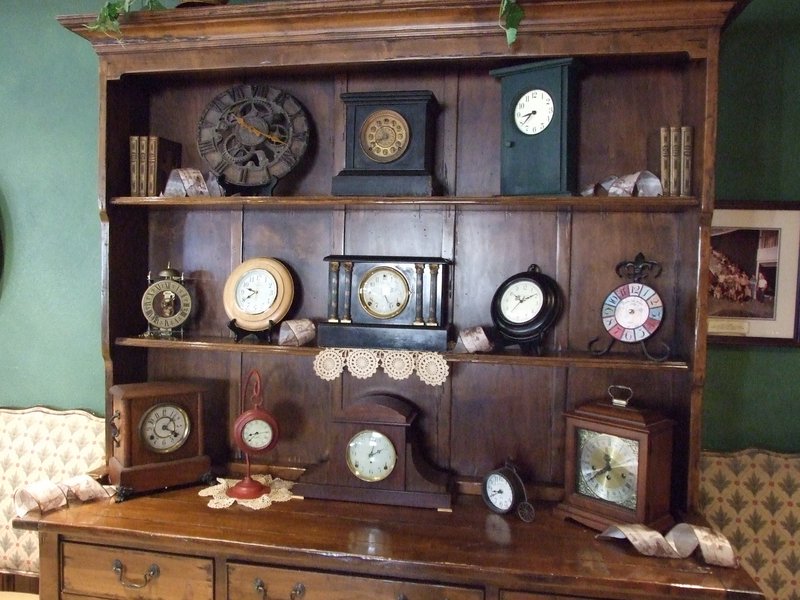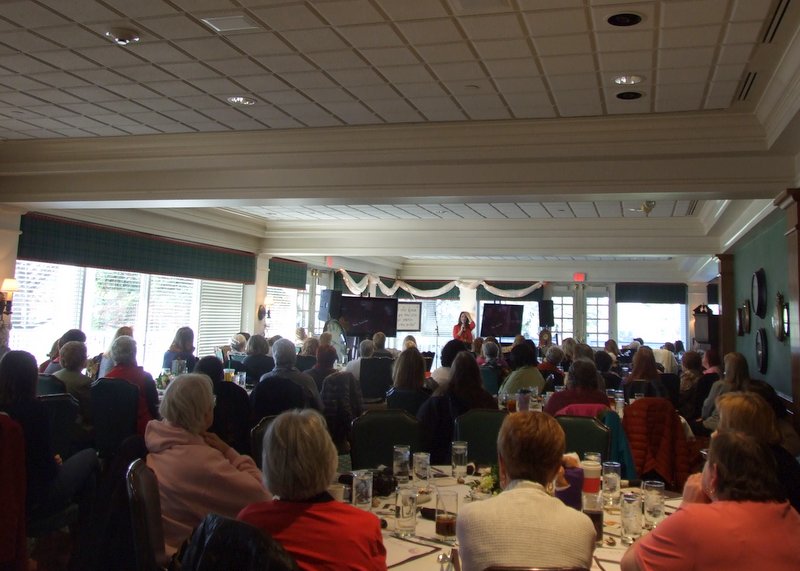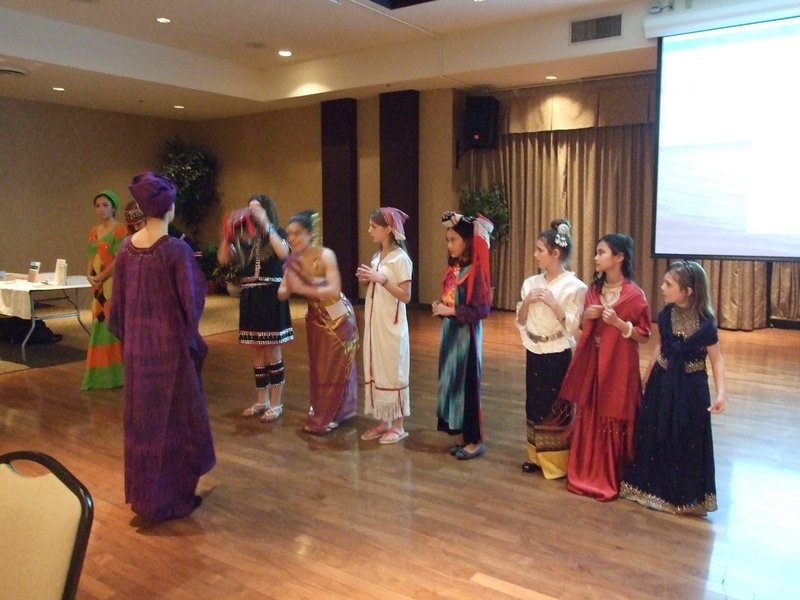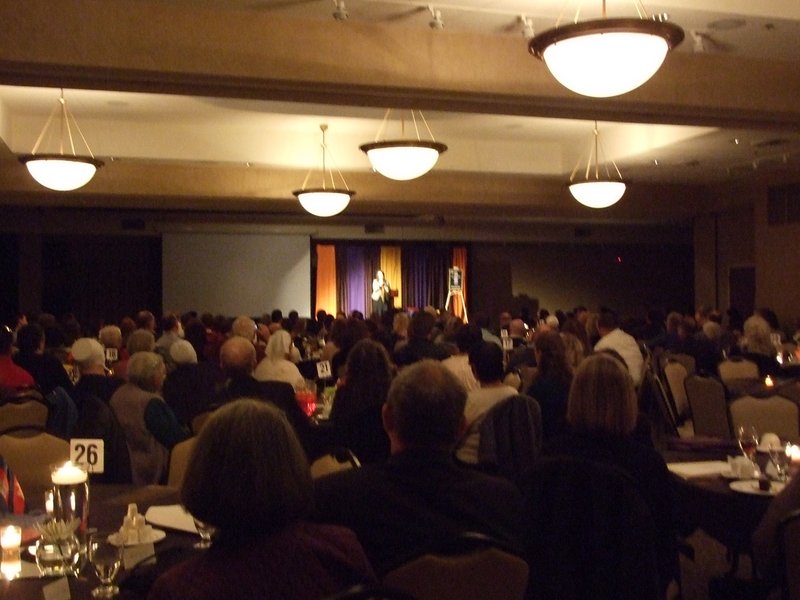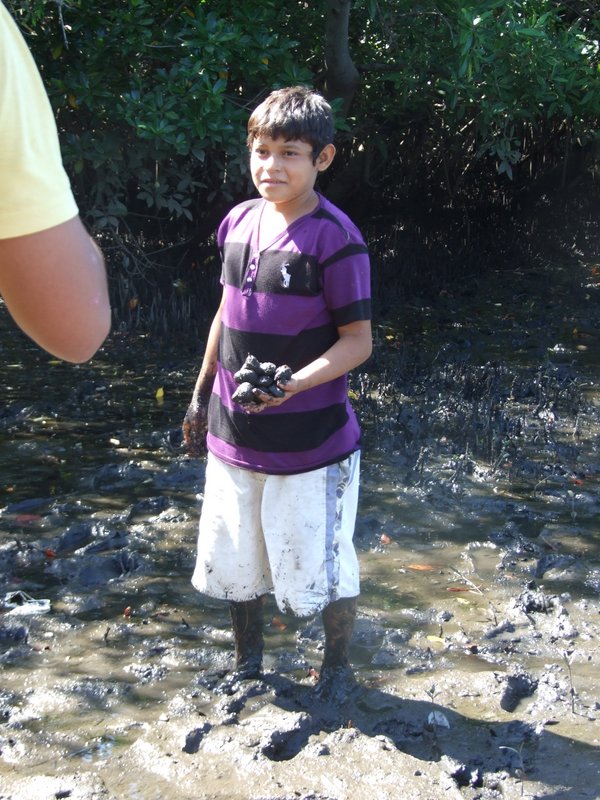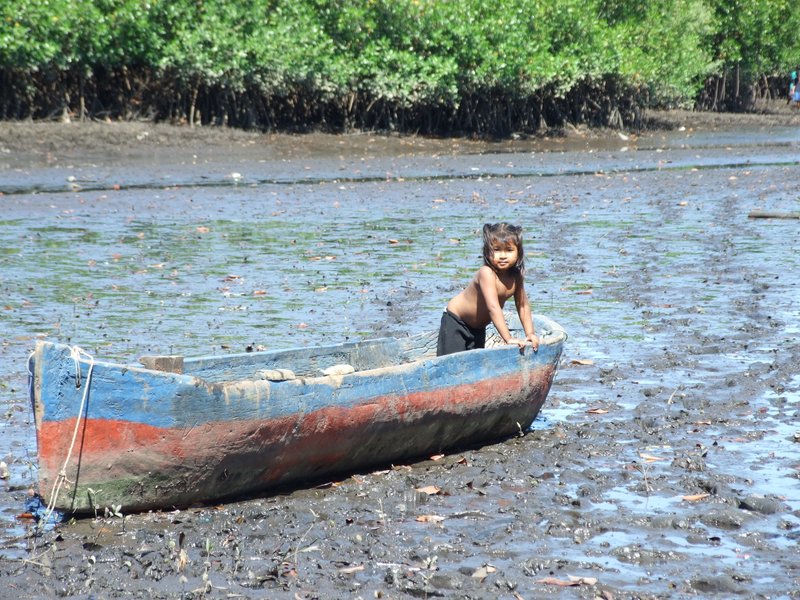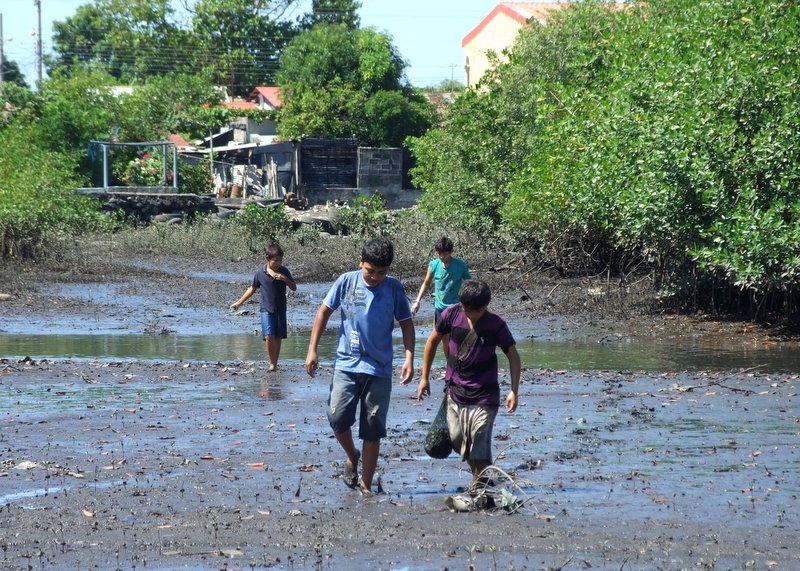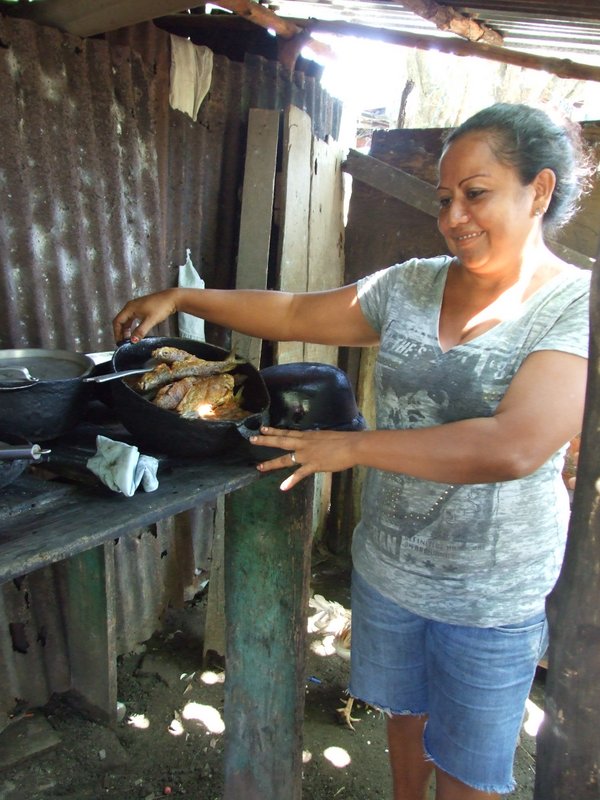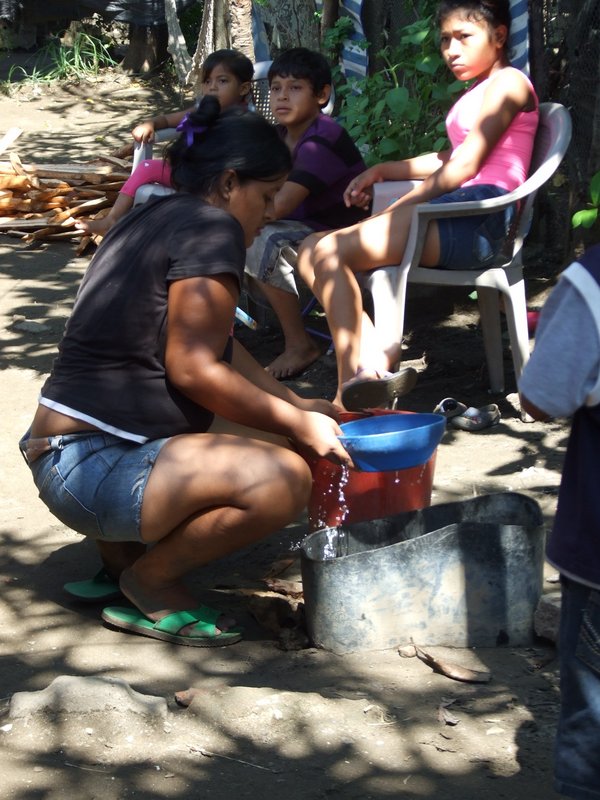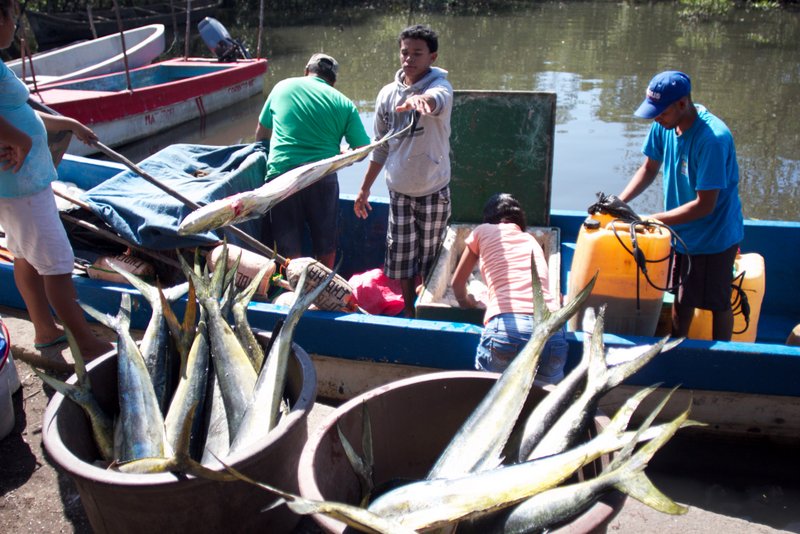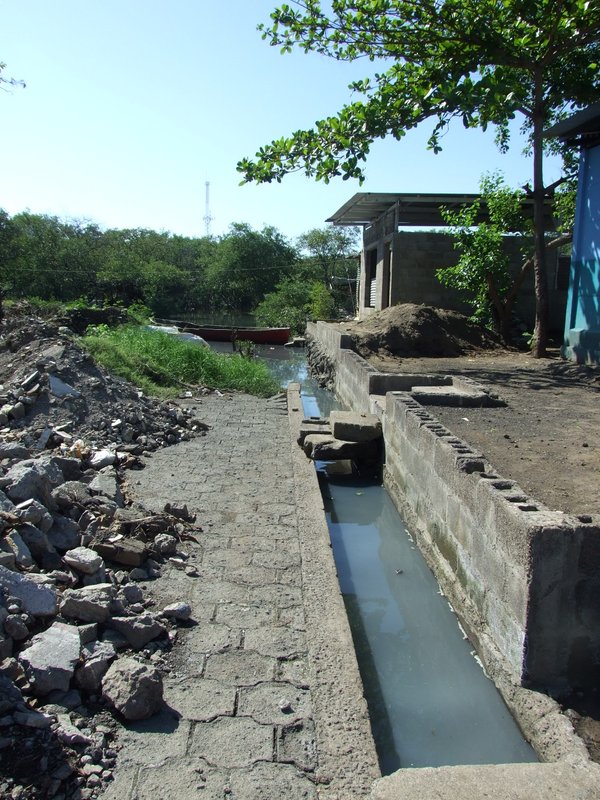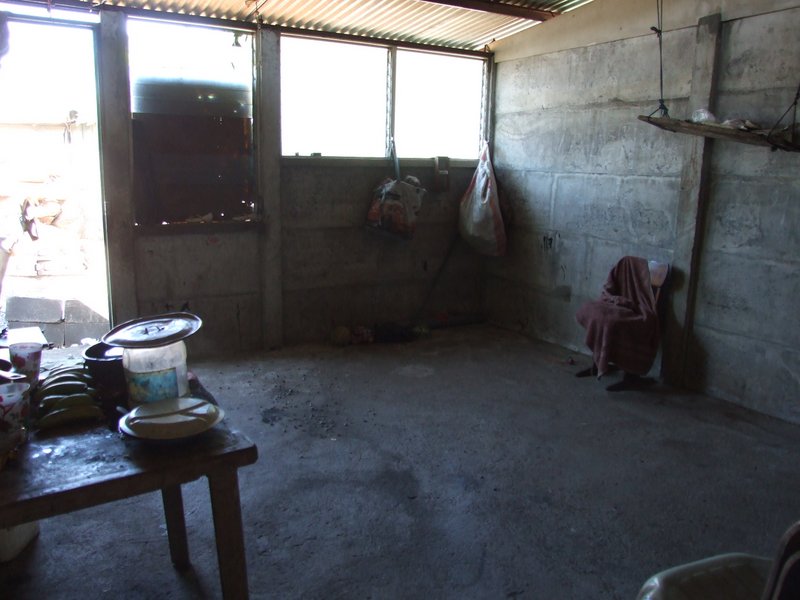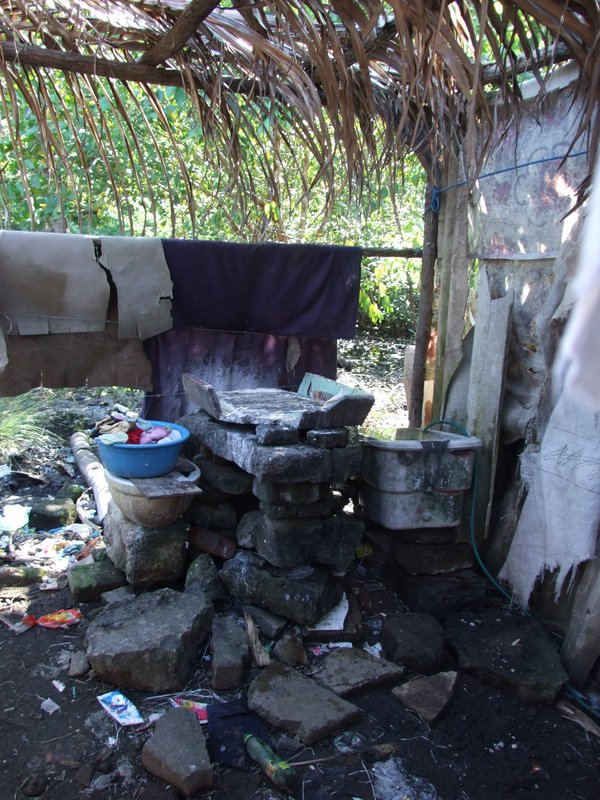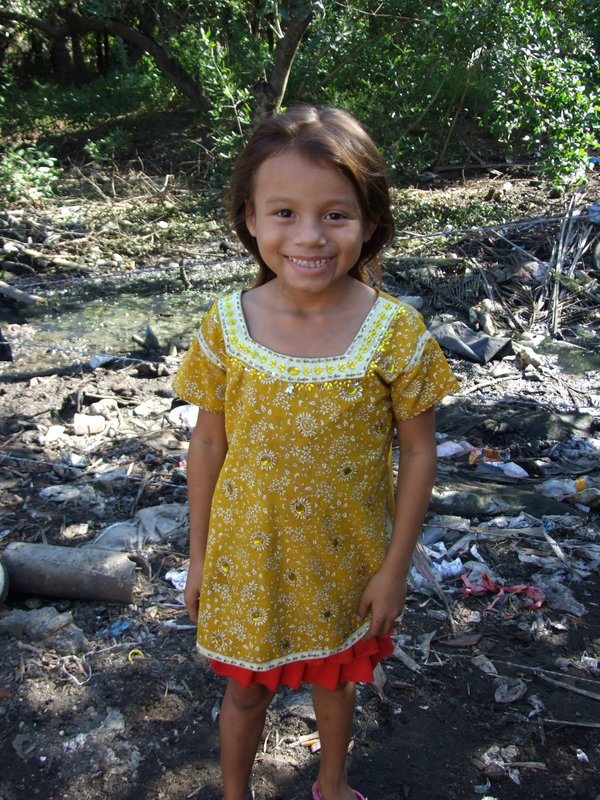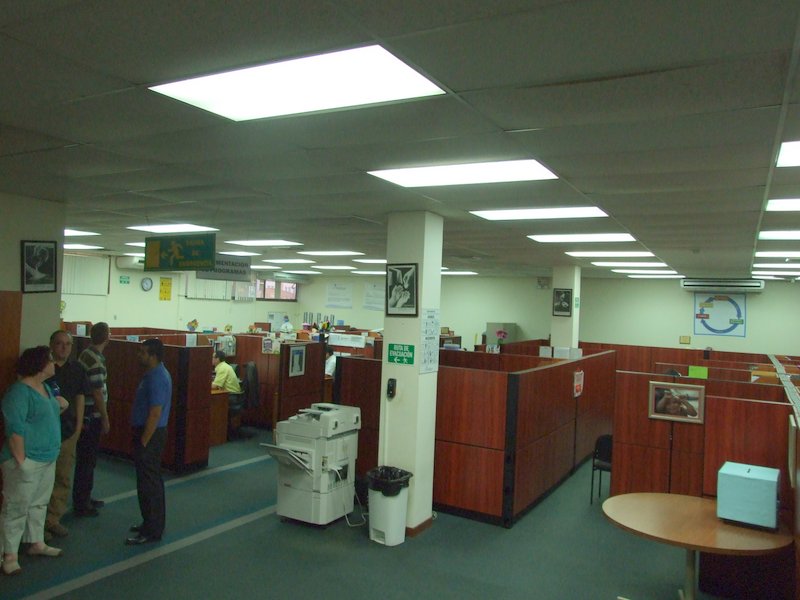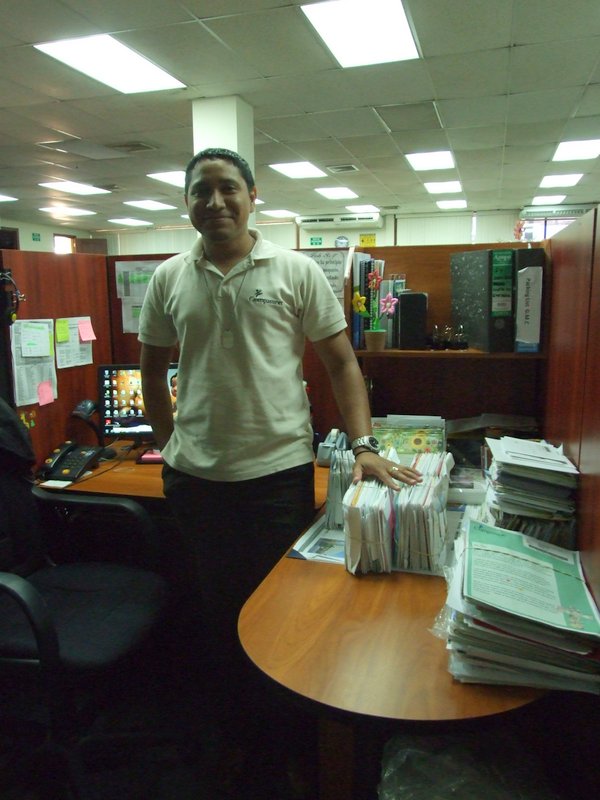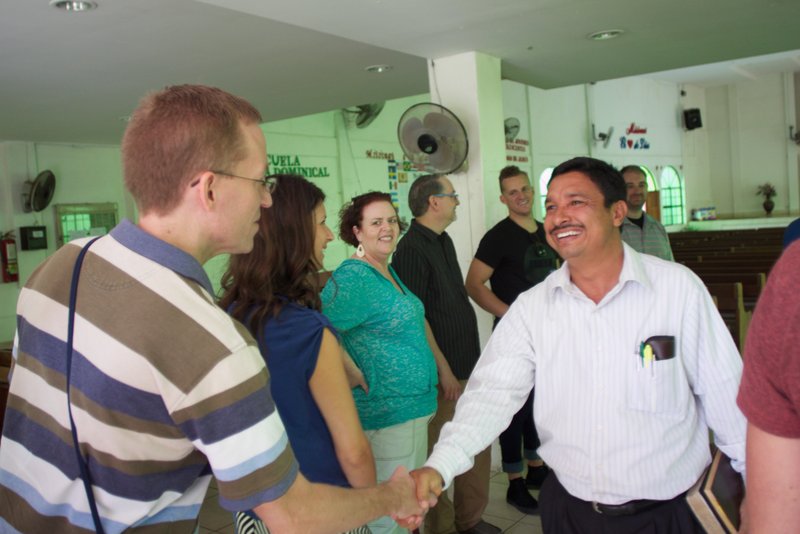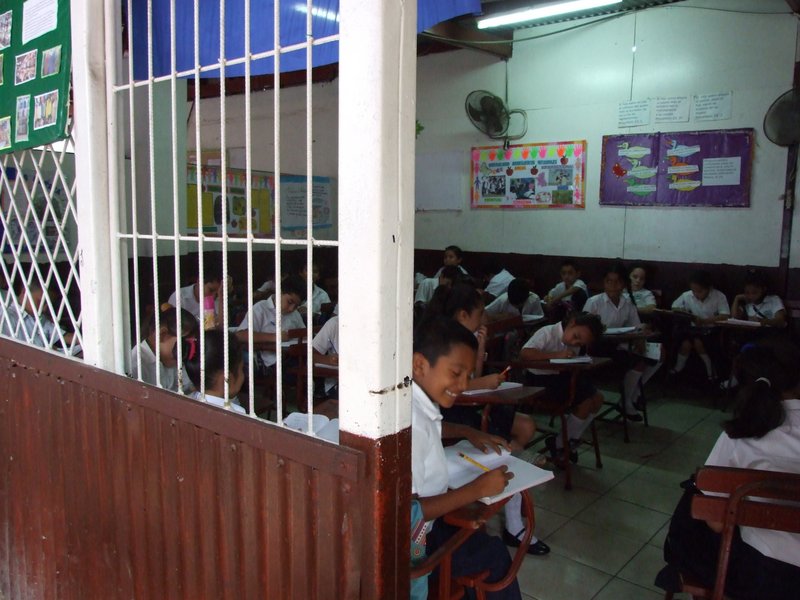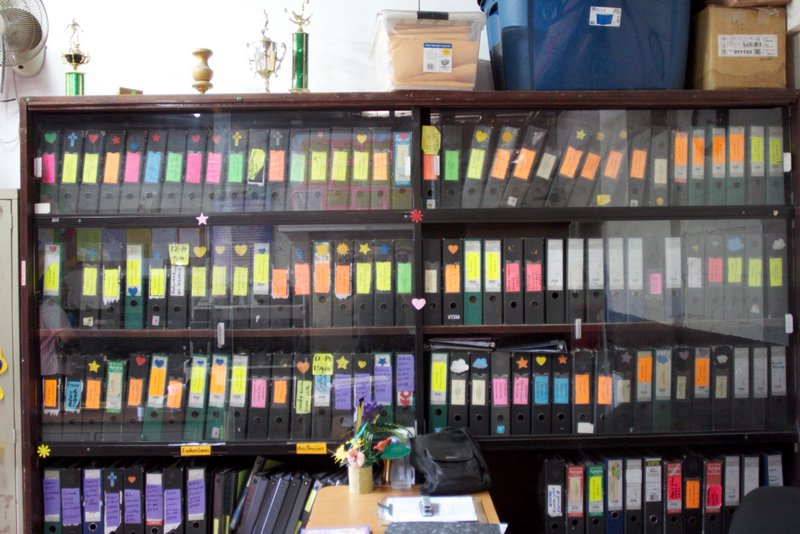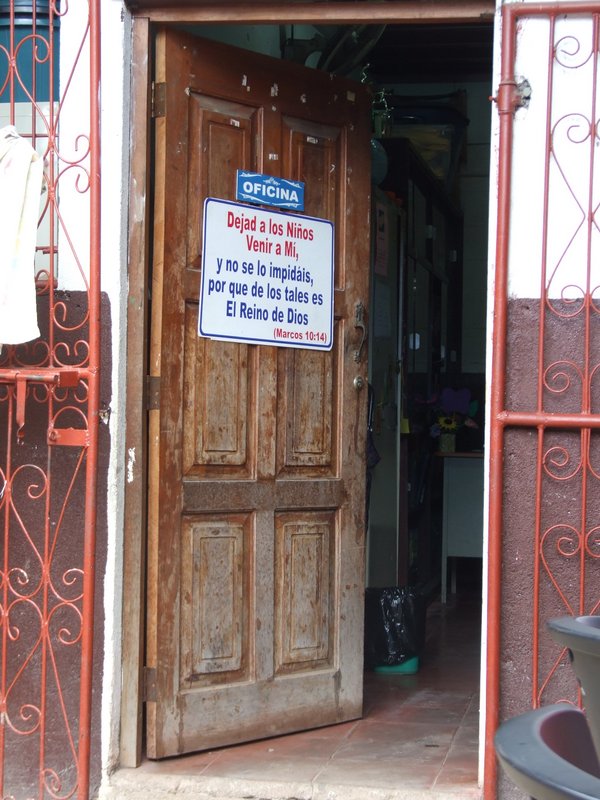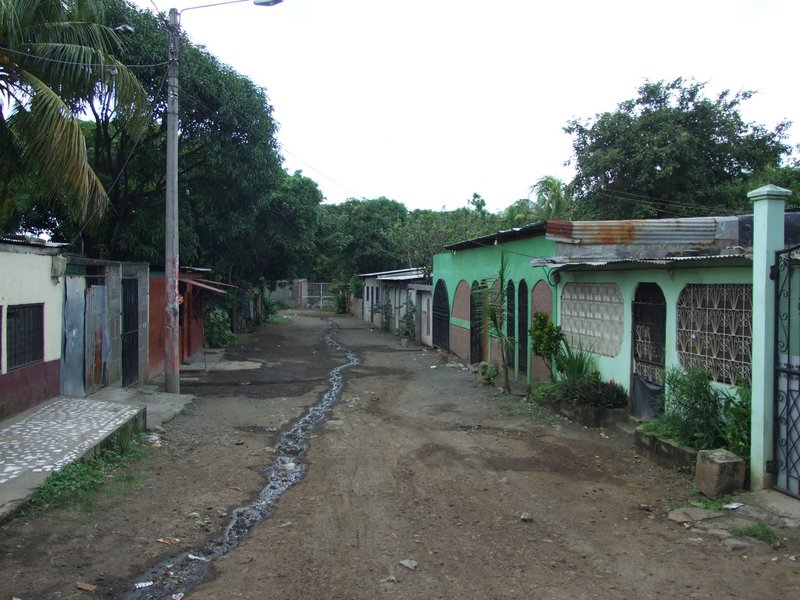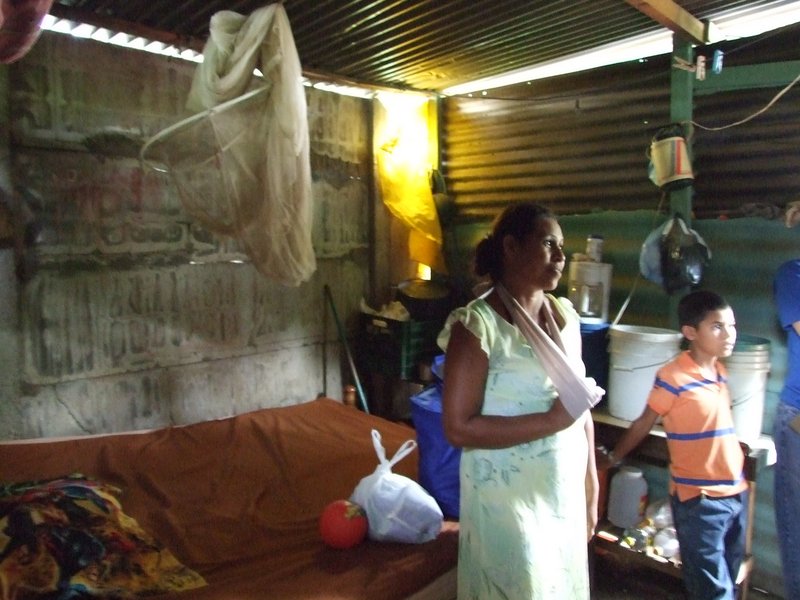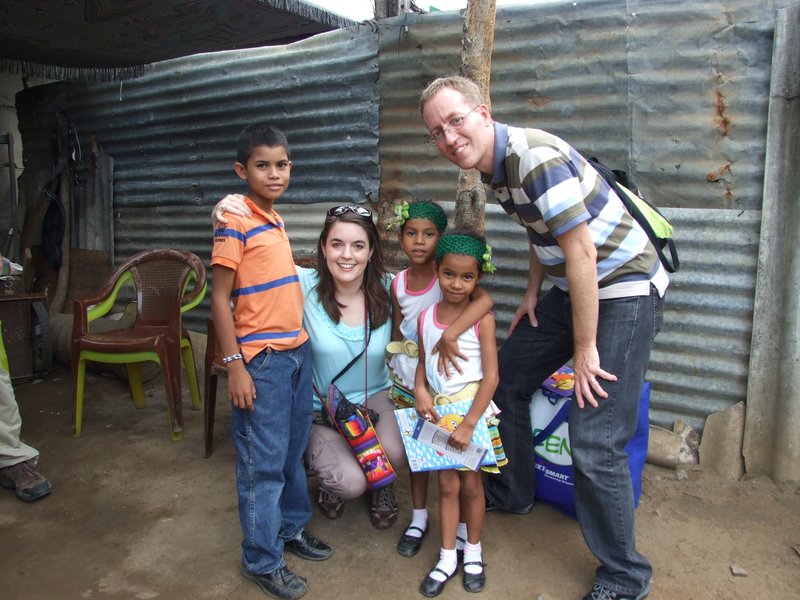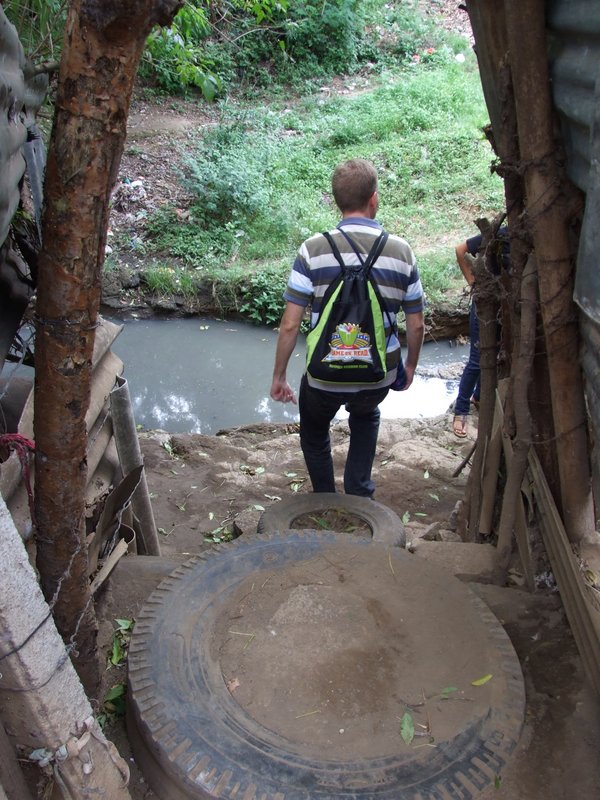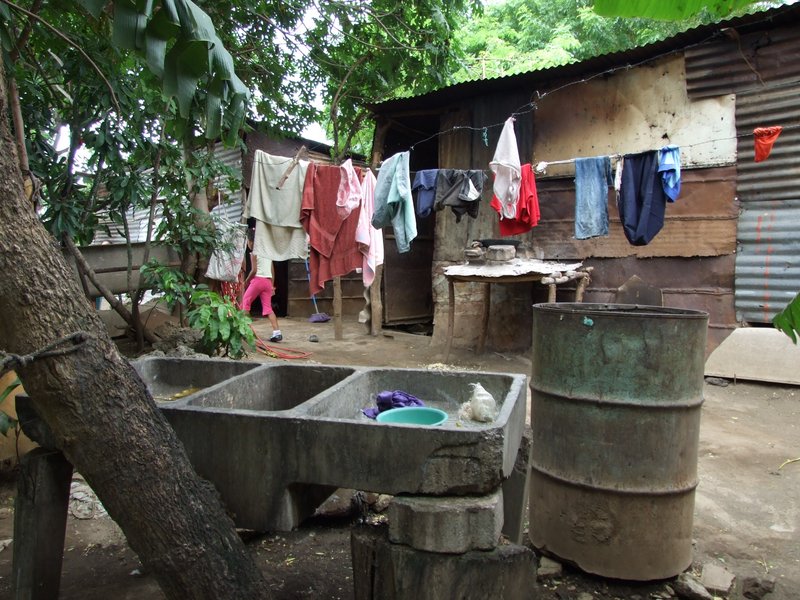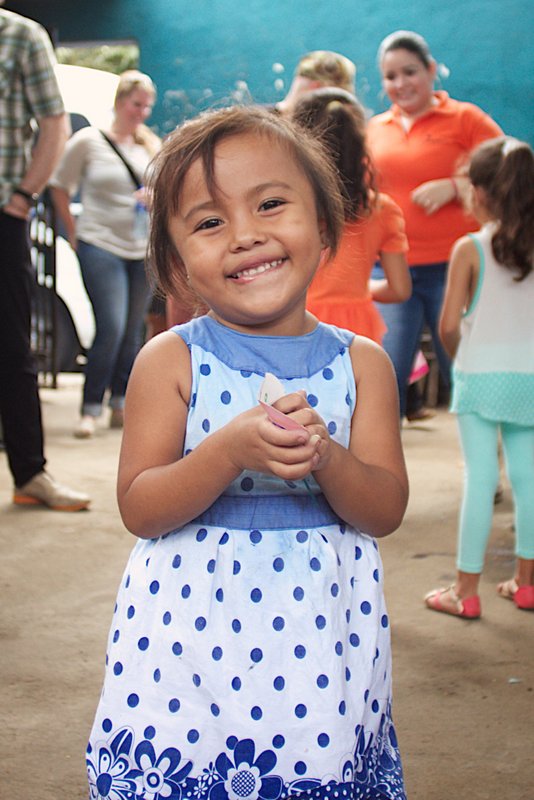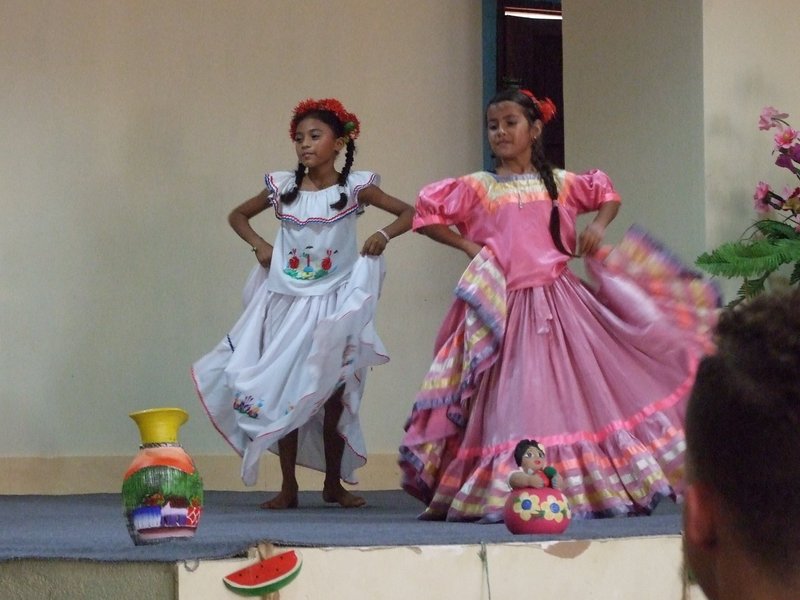
At the welcome assembly in Corinto – some of the children did beautiful traditional Nicaraguan dances
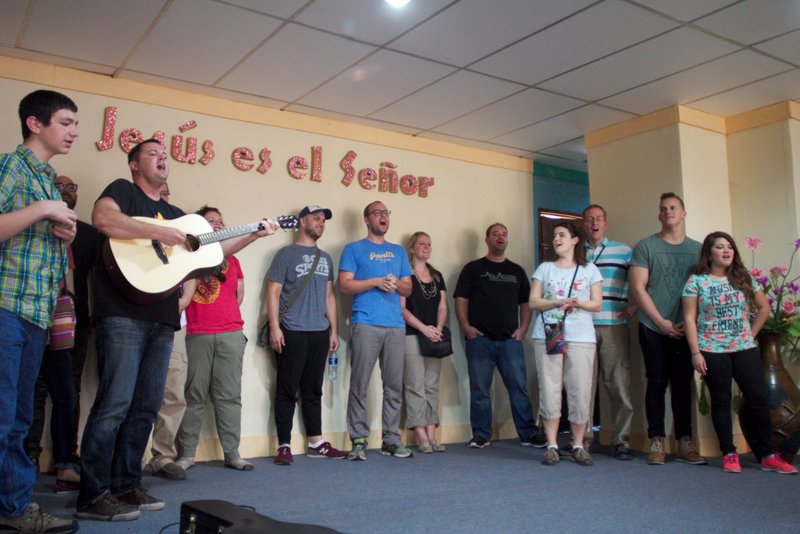
Our team singing to the kids and families in Corinto – we sang “How Great is Our God”
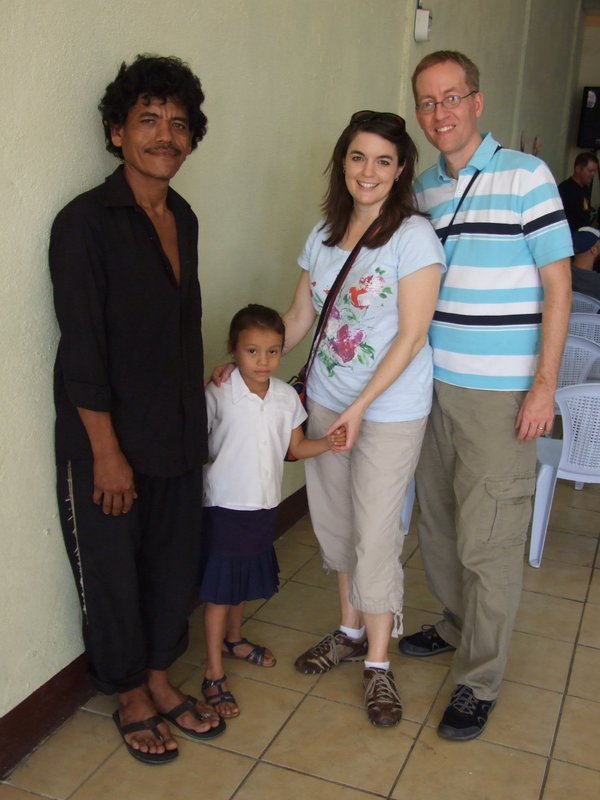
Meeting Milagro and her father
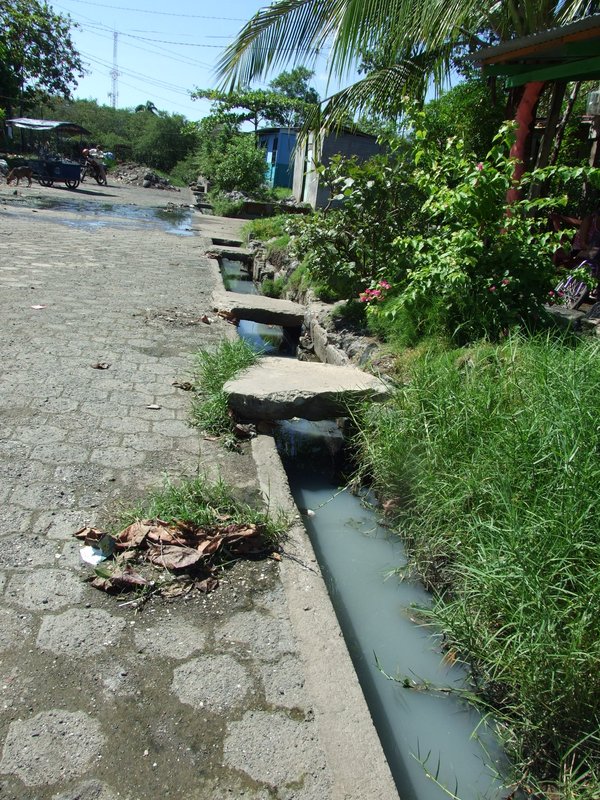
These streets had sewers but they were open and ended right in the yards of the people we were visiting
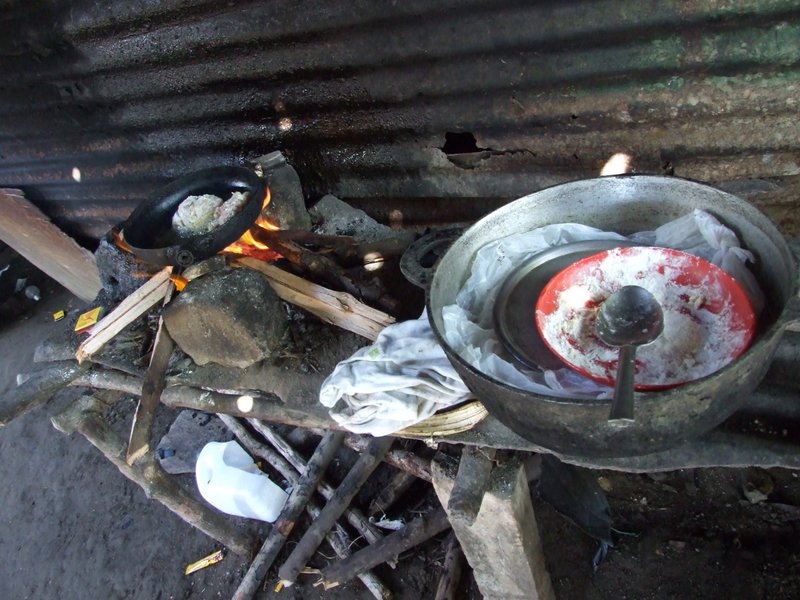
The cooking station at one of our home visits – she was cooking for the returning fishermen
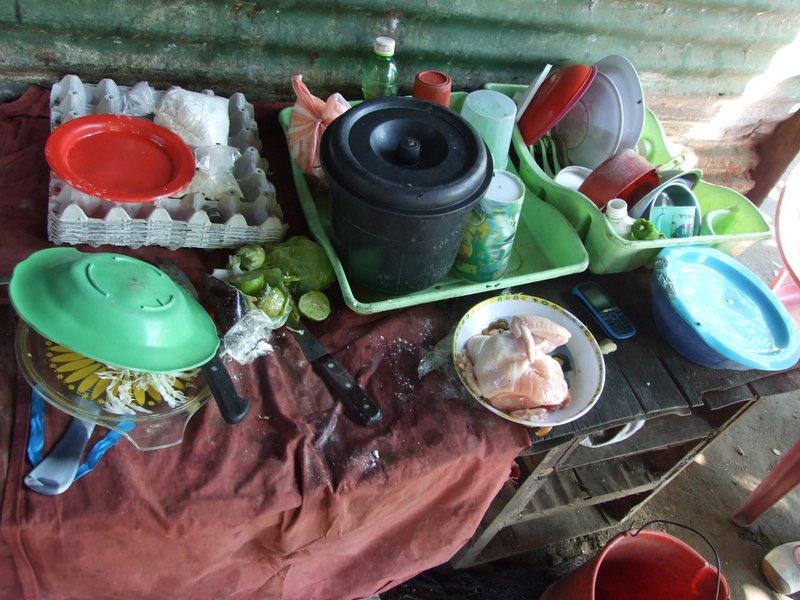
The other half of her kitchen
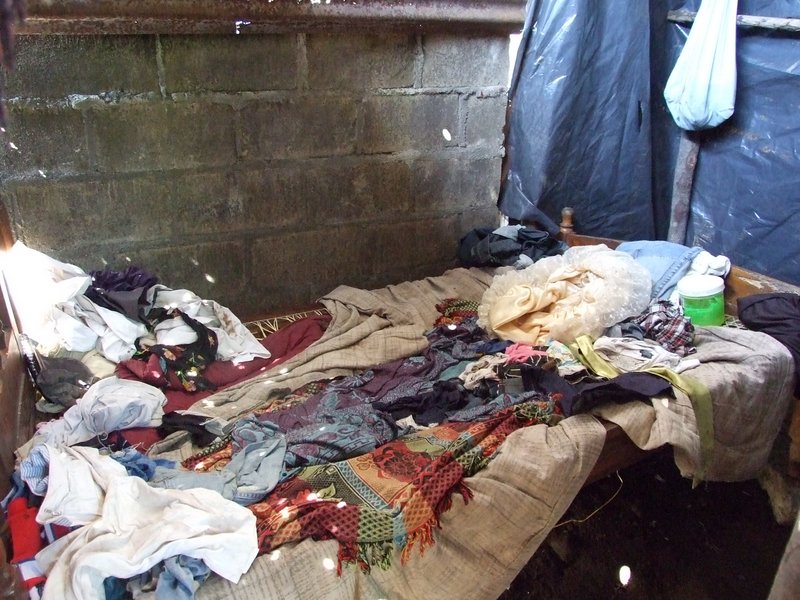
The bed their family of five shares in her brother’s house
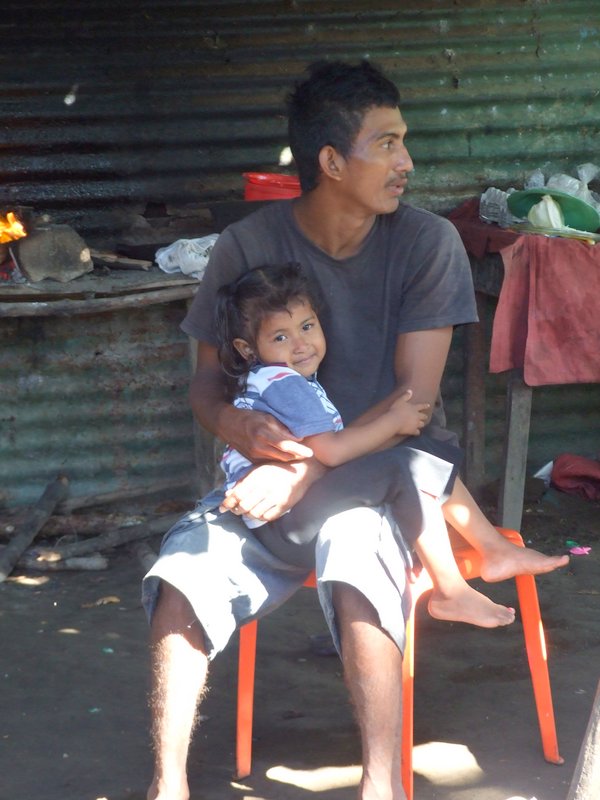
Her husband holding the baby – he was such a loving dad!
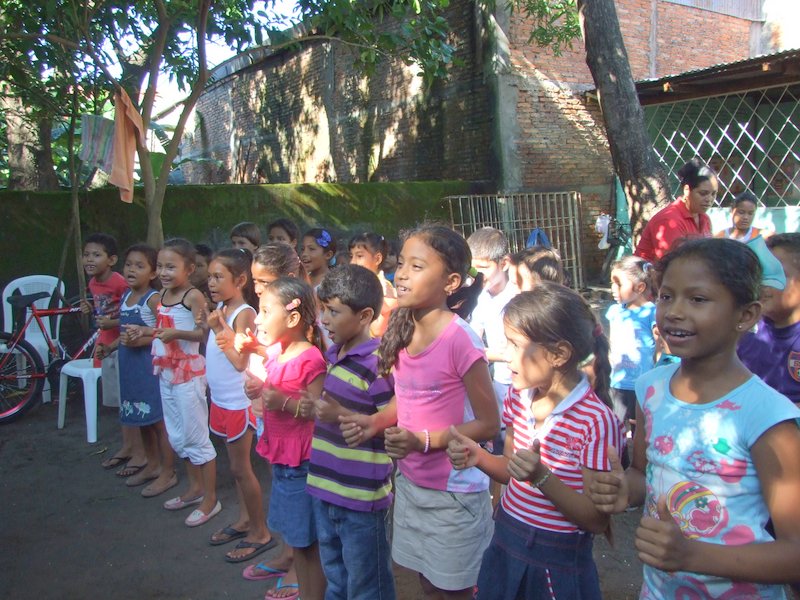
The kids back at the Compassion program
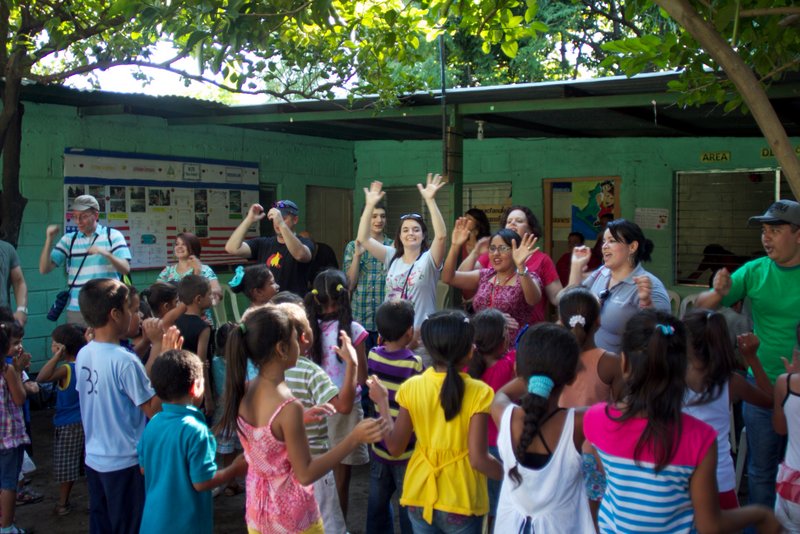
Singing with the kids at the school
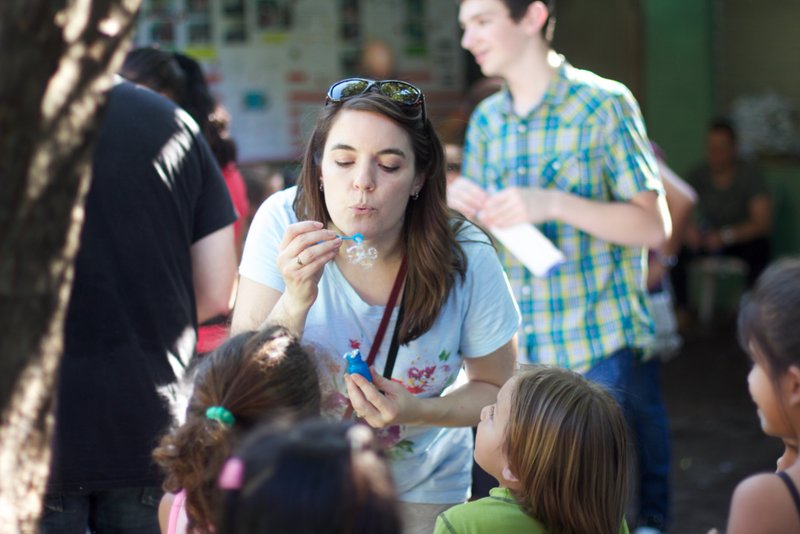
Blowing bubbles with the children at the school
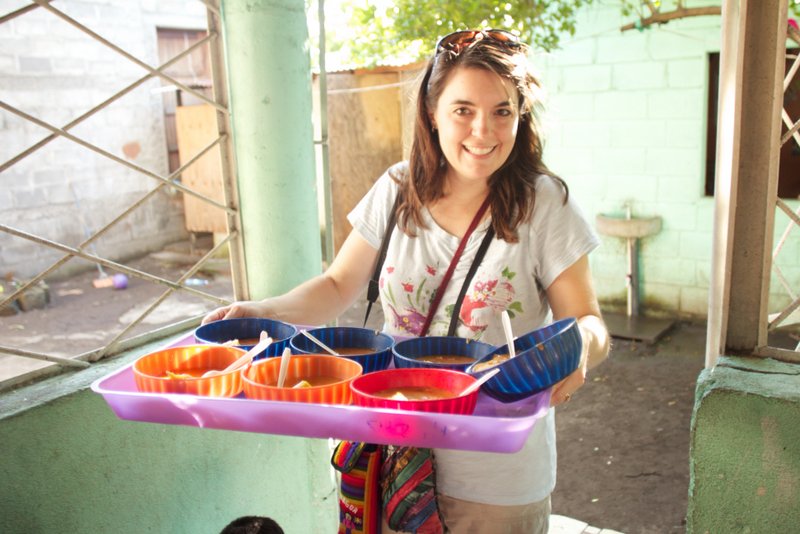
Bringing in the afternoon meal
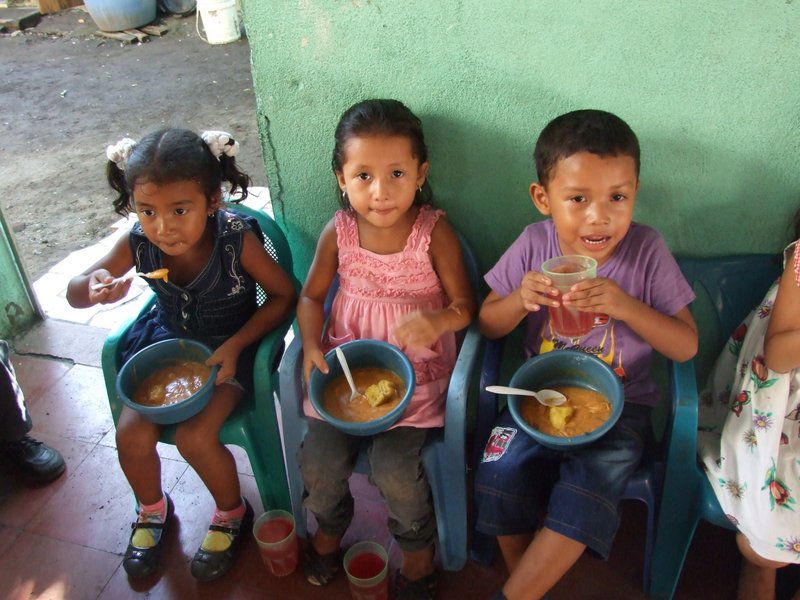
Yum! Chicken corn soup with plantains
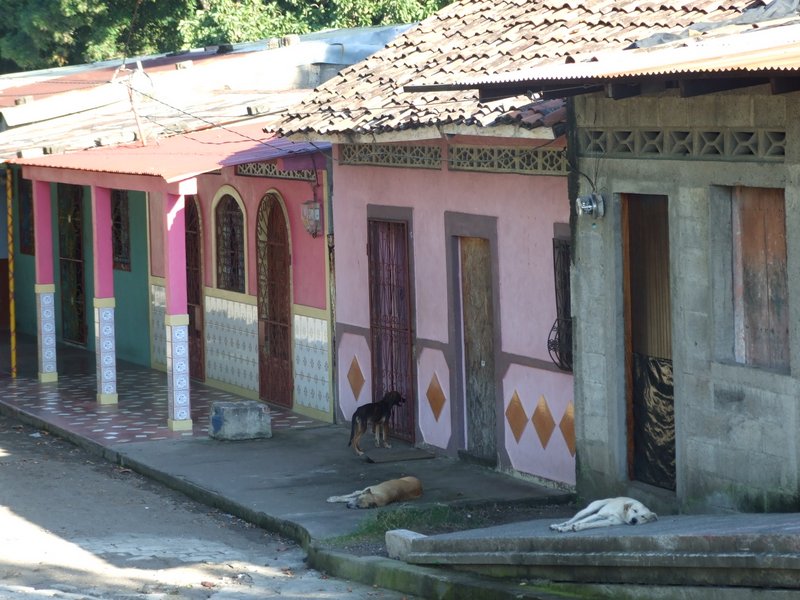
There were dogs absolutely everywhere, and you could tell by their posture it was really hot
To view larger images of the pictures, just click on them.
The next morning we got up and went to the church partnership in Corinto. This was especially interesting because it’s a new program here. The ones we had seen in Managua were well established and had many graduates, but this program had only begun 8 months ago.
Corinto is on the Pacific coast, and most of the population are fishermen. The church we were with had been trying to get Compassion there for several years, and the pastor was so happy that they had gotten the program started! Although it was rural as opposed to urban, the neighborhood felt similar, and we would learn the same truths about it – poor but decent housing surrounded on the fringes by a double layer of true desperation.
One of the problems that we see everywhere we go in developing nations is water. These people had no clean water at all. But the problem is very different. When we were in Kenya, there was no clean water, but there was no water at all. People were walking 8 miles to dirty water everyday. That is a serious problem. Here, there was water everywhere – they were living on an ocean just feet above sea level and dirty water was running through the streets. They had no access to clean water, and also no way to get away from the dirty water – no sewers, no filtration system, floods every time it rained bringing sewage and trash with it right into their homes. Opposite ends of a desperate problem with water.
We got to the church and they had a special assembly with all the kids and a lot of parents to welcome us. Since this is a new program, we were the first visitors other than the staff in Nicaragua, so that made us an oddity. 🙂 The kids did a beautiful program including some singing and traditional Nicaraguan dances and then we sang for them too. Afterward we went out and saw the classrooms and heard from the school administrator and pastor about how the program was going and how it was impacting the community and the families.
As we were listening to this pastor, something struck me that I had never realized before about this program. This pastor was also so passionate about helping these kids and families and he knew every one. This was his neighborhood, these were his neighbors. He had seen the problems and his church wanted so much to help, but lacked the resources. I thought about how heartbroken I would be as a Christian if I saw obvious needs around me that I could not address, and I realized that not only are we helping the children and their families, we are enabling the Church to be the Church in a way that would not be possible for them without support. This is a double blessing we are giving!
The pastor’s wife here was amazing! She loved the children so much, and she was with us for a lot of the time we were there, mostly because we were going to the homes of children in her class and she was so proud of them, she wanted to introduce us and show us how special they were. The mothers of kids in her class told us she visits every day, just to check in and see how they are doing, if they need anything and are doing their homework. It was incredible! These are the people we are supporting in ministry!
While at the school I got to meet a very special child named Milagro which means “miracle.” My scheduling coordinator and good friend, Donna, asked me to find a child who needed a sponsor while I was there and meet her for Donna’s family so they could sponsor her and feel like they knew her situation personally. Donna already sponsors three boys, so she thought it was time for a girl!
Milagro is the youngest of three children and 7 years old. Her father is a single dad, and our translator, Carlos, told me that he thinks her father is “a very brave man.” He told me that the culture does not see caring for ones’ children as being masculine, so if the mom leaves (Milgro’s mother is an alcoholic and abandoned the family) most dads would abandon their children. Milagro’s father told me many times how much he loves his children, and that he could not imagine giving them up. He drives a bicycle cart and supports his family that way. Milagro also has a 15 year old brother and a 9 year old sister named Amanda who has some neurological issues. Amanda was having testing for that the following week and the dad asked us to pray for her with tears in his eyes. She is able to have the testing now because she is also sponsored through Compassion, and he is hoping they will finally get some answers and medical help.
After meeting Milagro (we were going to visit her at home the next day), we went for another home visit to one of the families in the program. This neighborhood was slightly better than the urban one in that it had open sewers running alongside the street rather than sewage running in the street. Unfortunately, the sewer ended where the pavement did, which was right where the houses we were visiting started, draining all that was running through the sewer right into the backyards of these homes.
The father of the family we visited was a fisherman, and he had been out fishing all night, but asked to be woken when we got there because he wanted to see us. We got there and talked to mom, dad, the three kids, the sister-in-law, and nephew. They lived next door to mom’s brother which had turned out to be a real blessing. There was an earthquake two weeks earlier, and now their house was tilted about 30 degrees off vertical. It was too dangerous to sleep in there (we went in for a few minutes and I was seriously uncomfortable just being inside it because it was so obviously unstable), so her brother had taken them in, and now there were eight people sleeping in one room about 10 feet by 14 feet, with one twin bed holding her family of five and her brother’s family sleeping on the floor. They had no mattress – the bed frame was lined with rags – and they were hoping to do something about the situation because at the full moon, the tides shift and usually flood their homes monthly. She was not sure how they would get all eight of them in the bed when the floor flooded.
It’s hard to describe how difficult it was to be at this home. The smell was incredible as there was running sewage in the yard, and the mud flats behind the home are exposed at the low tide which makes everything smell like fish. There were flies and insects everywhere. It was very hard to keep anything or anyone clean with the mud everywhere. Mom makes an extra $2 a day by cooking for the fishermen when they are coming in after work, and the whole time we were talking, she was working, cooking chicken that had had no refrigeration in 98 degree heat all day, using one knife for the chicken and vegetables, with no water and no way to clean anything, dripping chicken juices all over her work surface. It was difficult not to react.
We sat and talked with them for a long time. Dad works 15 to 24 hour shifts. He gets 1 Cordoba for every pound of fish he catches. There are 26 Cordoba to 1 US Dollar, so that’s 26 pounds of fish for him to make $1. She said on his best days, he catches 200 pounds of fish, making just under $8, and about half the days, he will work those very long shifts and catch nothing. She cooks for the fishermen and also cuts wood, rowing 3 hours to get to the place where they can cut it, bringing it back in the boat, and selling it for 40 cents per 100 pieces. If she still doesn’t have enough money to feed the family every day, she will go and rent a bicycle cart and drive people around until she earns enough to make a meal.
People have said to me that poor people just need to work harder or make different choices. Poverty is so much more complicated than that. These people worked harder than I ever have, often not sleeping at all because they are chopping wood during the day and fishing all night. If you have no money, you can’t move to a place with more opportunity because you have no means to get there or money to stay somewhere when you arrive. When you have to work every second of the day just to eat, you have no time to attend school to change your future. When you have no hope of things ever being better, you don’t think about the future – you are always focused on what you need right now.
There were people making bad choices, just like Milagro’s mother, but there were many more doing everything they could to provide for their families. There are people making bad choices at every level of society. The difference is that when you have a little more, you have options. And what I saw Compassion giving was the hope of Christ, so people knew they could have a different future, and then the means to realize that future.
We went back to the school and played with the kids for a while. We had brought some candy and some bubbles and other things to play with. It was a relief really to get back to the school and see the happy faces of the kids. We served them a meal (Compassion helps with nutrition, education, Christian nurture, medical care, and many other things) which they do every day before the kids head home to make sure they have dinner. This school was sunny and bright and clean, and the kids were so beautiful and happy, it was jarring to realize what they will go home to everyday.
And yet, I want to make sure that I say, these parents were amazing. They loved their children! They loved them so much, and they worked so hard with what they had. They had dignity, and they wanted so much more for their kids. That was what I heard over and over – they were so proud that their kids were going to school, that there might be something different for them down the road. Generational poverty is very hard to see beyond, but these parents had a glimpse of what could be, and they were hopeful to see where it would take their children.
To sponsor a child today, please visit Compassion following this link!

